Outdoor Science Lesson Ideas for Kids (original) (raw)
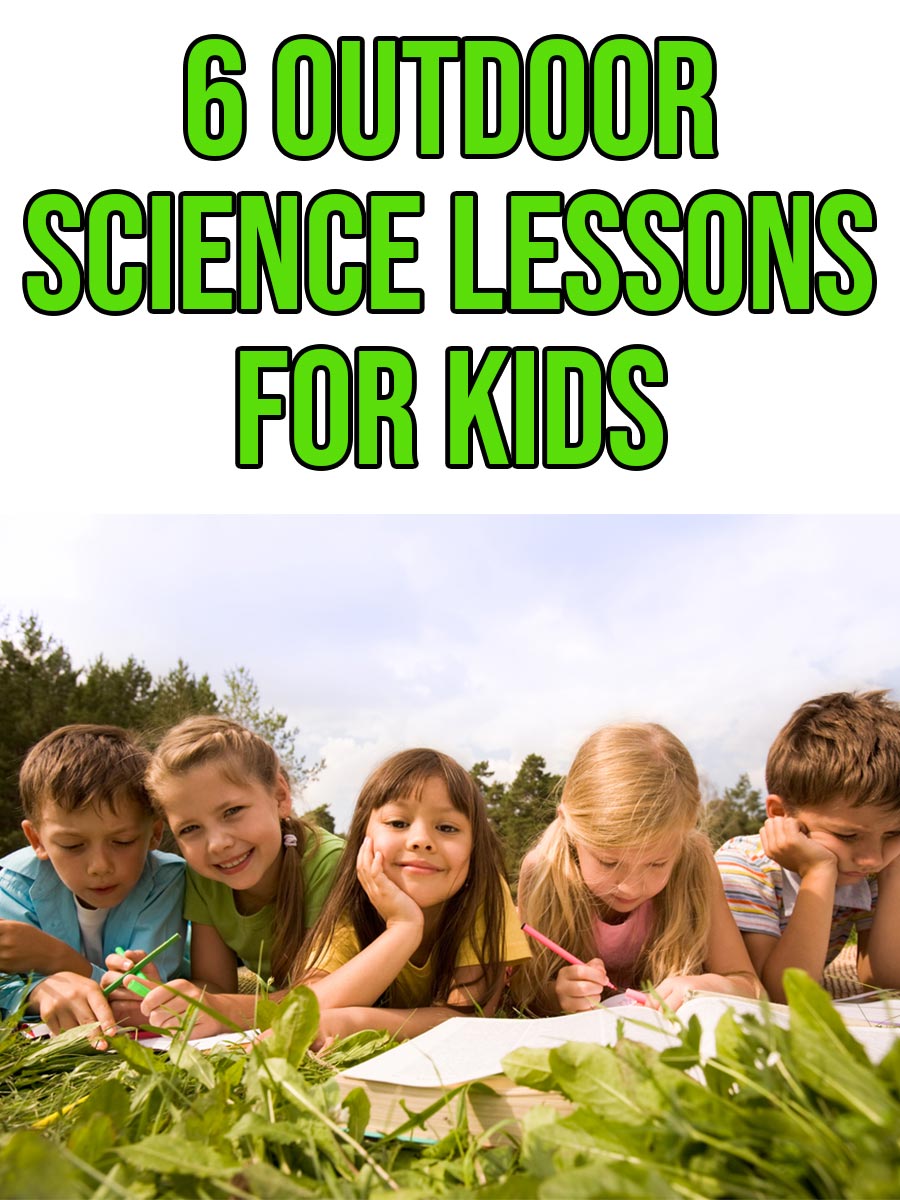
Our world is made up of science everywhere, and during the summer months, no one wants to be trapped inside. This is why teaching outdoor science lessons is such a great idea.
Not only does it allow you and your children to be outdoors during summer school lessons, but it also gives you an enormous canvas to use for learning.
These lesson ideas are perfect to keep kids learning throughout summer break. Use these ideas for a science summer camp at home!
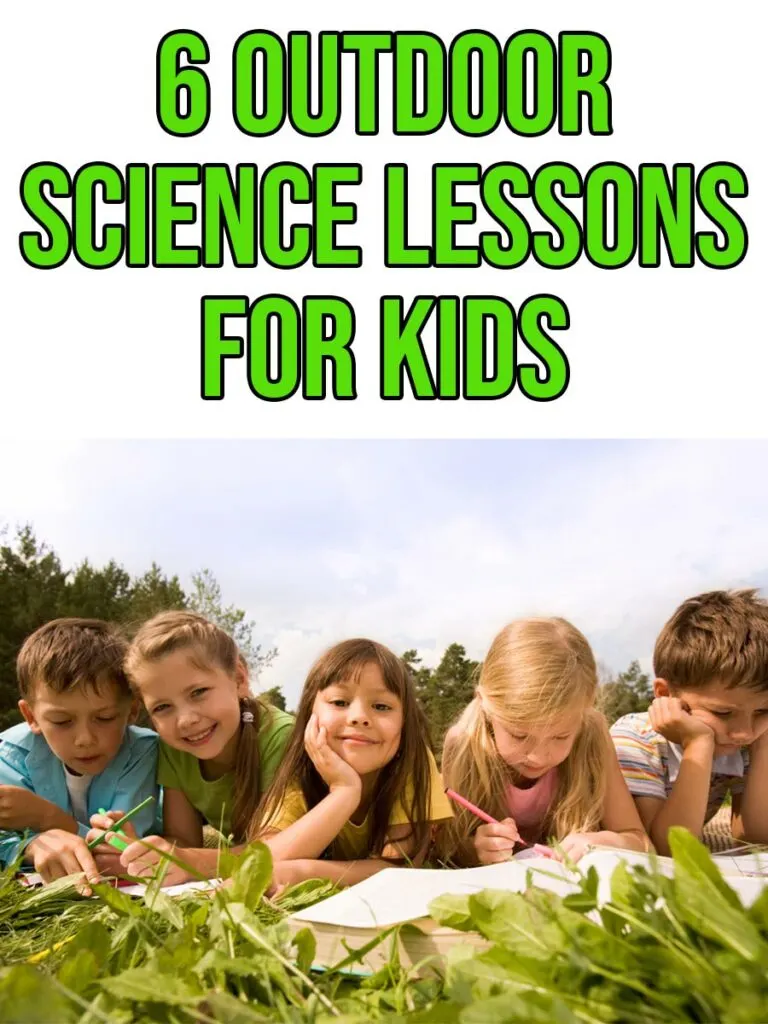
In other words, it makes teaching homeschool science during the summer easy. Check out these science activities for even more hands-on ideas to do at home. It’s also a great opportunity to incorporate outdoor math lessons too.
- Outdoor Homeschool Science Lessons for Kids
- Outdoor Homeschool Lessons for Middle and High School Students
- More Learning Activities for Kids:
Outdoor Homeschool Science Lessons for Kids
Teaching science to kids using the outdoors is amazingly simple and a wonderful way to get kids interested in science.
Since most younger children are just beginning to learn the basics of physical or earth science, the world is one humongous science lesson. Even doing something fun like mixing up this giant bubble recipe in the backyard is an opportunity for learning!
Because they are studying the basics, it is easy to find ways to teach science outdoors for their age group.
Once summer is over, the lessons outside don’t have to stop. We might be tempted to stay indoors as the temperatures drop, but there are plenty of ways to homeschool in the snow too.
Teach About Insects Outdoors
Bugs are everywhere, and most younger kids are fascinated by them.
If you are doing a homeschool unit study on insects and learning about the butterfly life cycle, ladybug life cycle, or making a praying mantis lapbook, taking them outdoors to study them in real life is one of the best ways to teach them.
If you do this, you will want to be sure to take safety precautions. The very last thing you want is for you or your children to pick up a poisonous insect.
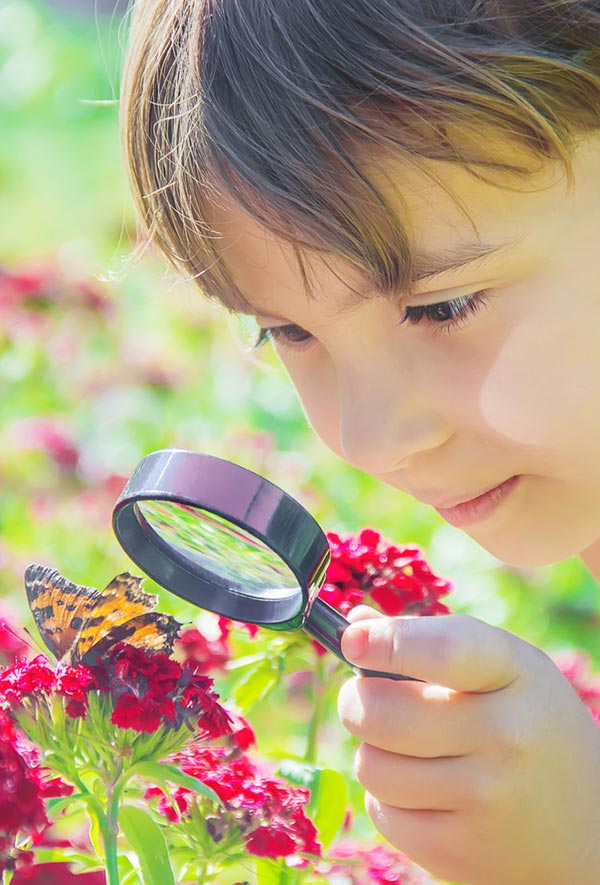
Have a Scavenger Hunt Science Lesson
Nature-themed scavenger hunts are a fun way to teach about the natural world. They are best kept to under ten items for smaller kids and fifteen items for older children.
For younger-aged kids, you can give them a printable nature scavenger hunt that uses pictures of what they are looking or a checklist.
For older kids, you can have them solve riddles or task them with finding items that fit a set of written clues, similar to the ones included in our animal scavenger hunt printables.
Outdoor Homeschool Lessons for Middle and High School Students
Many of these lesson ideas work for both younger and older kids. They especially work well if you are homeschooling multiple age groups.
Older students can dive deeper into these subject areas than younger kids. They can conduct additional research, answer more complex questions, or even write a report or paper.
Middle and high school students may also be able to work on building and creating some of these homeschool science projects more independently than younger children.
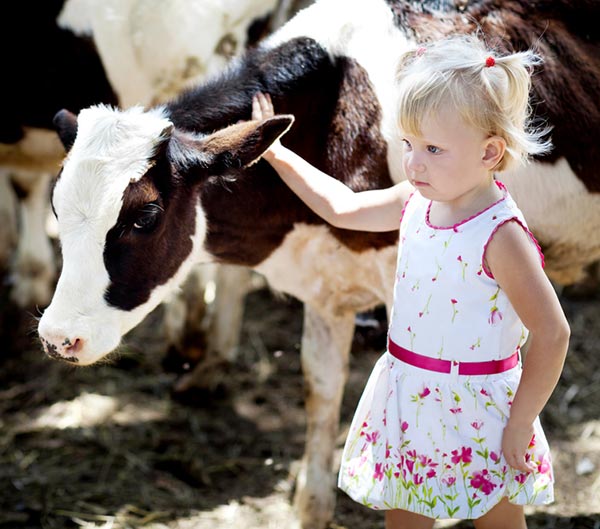
Visit a Local Farm or Zoo to Learn About Animals
Most kids study animals in science at some point. Your local farm or zoo is a great way to do this while letting your kids have fun.
With farm visits, your kids can often get up close and personal with the farm animals so they can learn in a hands-on way. For more exotic animals you are studying, visiting your local zoo is a great way to reinforce what they are already learning.
For older students, the zoo is also a great way to teach more than basic animal facts. If they are middle or high school level, they can learn the more profound biology of each species.
Some zoos even offer hands-on demonstrations, which almost always makes a great memory and teaches a lesson simultaneously.
Build a Solar Oven to Learn About the Sun
Older children and teens who are learning more about the sun will enjoy building a solar oven. It is a fun and unique way to teach about UV rays and how hot the sun is. Plus, once you are done building it, you can bake cookies, make s’mores or another snack in it!
You do not need many supplies to build a solar oven. All that is necessary is a box with a lid, aluminum foil, and plastic wrap.
There are also more advanced DIY solar oven projects that use a Fresnel lens. If you choose to build one of those, please use extreme caution and follow all safety guidelines since it is possible to start a fire or burn yourself.
This post contains affiliate links. As an Amazon Associate and a participant in other affiliate programs, we earn a commission on qualifying purchases.
Grow a Worm Tower and Compost Pile
Another great outdoor science lesson to teach this summer is to build a worm tower and compost pile. This one can appeal to both younger and older kids.
To start, you will need to buy a worm towerand a pound or so of redworms. This small worm farm container is a good option for kids too. Then, you will need to add composting material.
As your worms breed and your colony grows, you will be able to teach about all of the things that encompass the biology of worms and raising them.
Then, add your worms to your compost pile and watch them help break it down into usable garden soil.
Check out the book Worms Eat My Garbage for more helpful information and tips about starting and maintaining a worm composting system.
Whether indoors or outdoors, gardening with kids is also a learning opportunity.
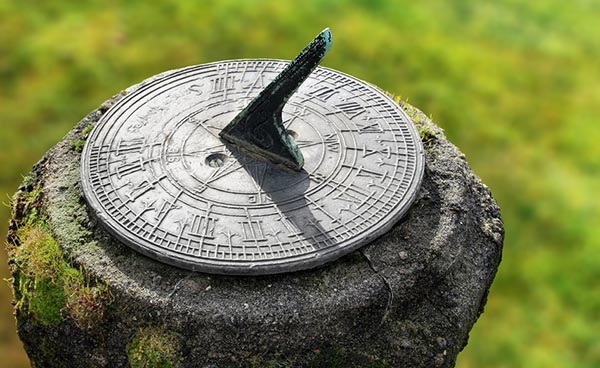
Make a Sundial To Learn About Time
Whether you have a younger child who is learning how to tell time or an older student who is learning about ancient history and how they used the sun, making a sundial is a creative way to teach them both lessons.
You can create a sundial with only two sticks, twine, and a few pebbles.
Lay the stones out to represent each hour on a clock face. Then, lay one stick on the ground with the other pointing straight up.
As the sun moves, the shadow of the stick will move, and you have a great science lesson that comes with it!
Because a solid understanding of science is so important in life, these outdoor science lessons are a fun and memorable way to give them the solid scientific foundation they will need later in life or in a science career.
Whether they go on in their adult life to college or move directly into the job field, understanding what makes the world go round is the key to their success. A few great outdoor science lessons can help them know those things without struggling.
More Learning Activities for Kids:
- Printable Zoo Scavenger Hunt
- Printable Farm Scavenger Hunt
- Ocean Zones Density Tower
- Balloon Air Pressure Science Experiment
- Melting Rainbow Preschool Science Experiment

Darcy is the founder of “Life With Darcy and Brian,” where she combines her love for education, board games, and crafting to create engaging learning experiences for kids. Her creative projects and writing have been featured in outlets like The Toy Insider, CafeMom, Mom.com, Parents.com, Country Living, and The Pioneer Woman.